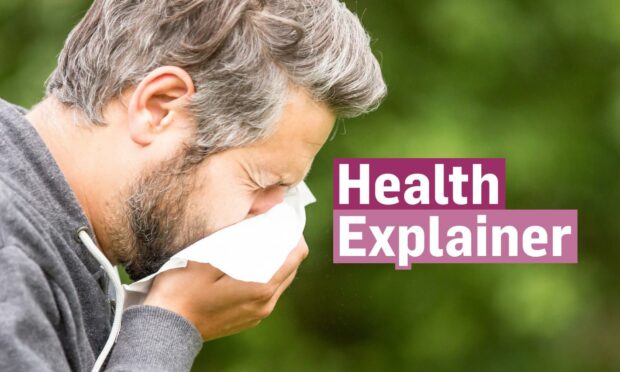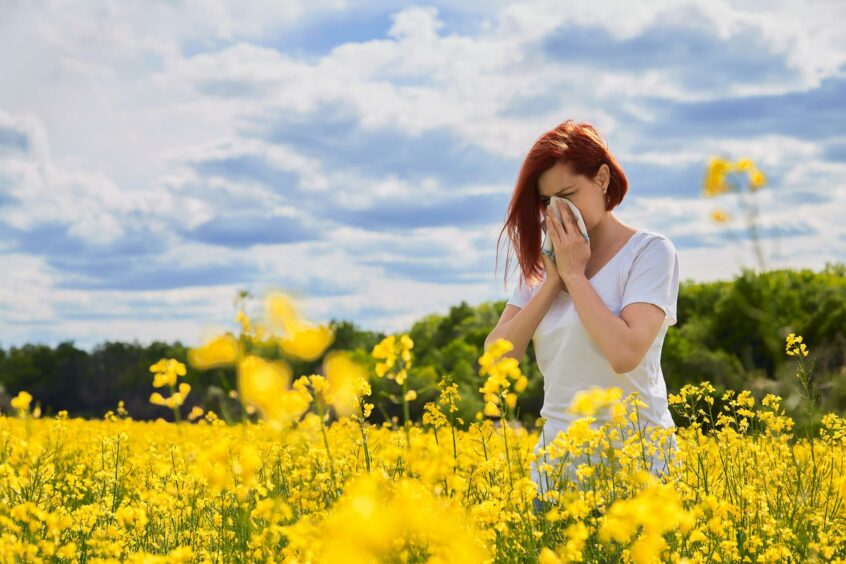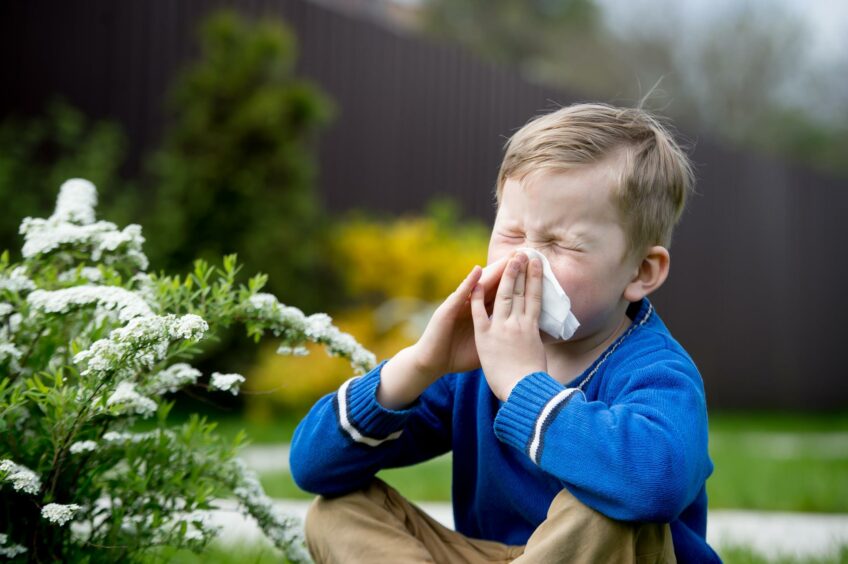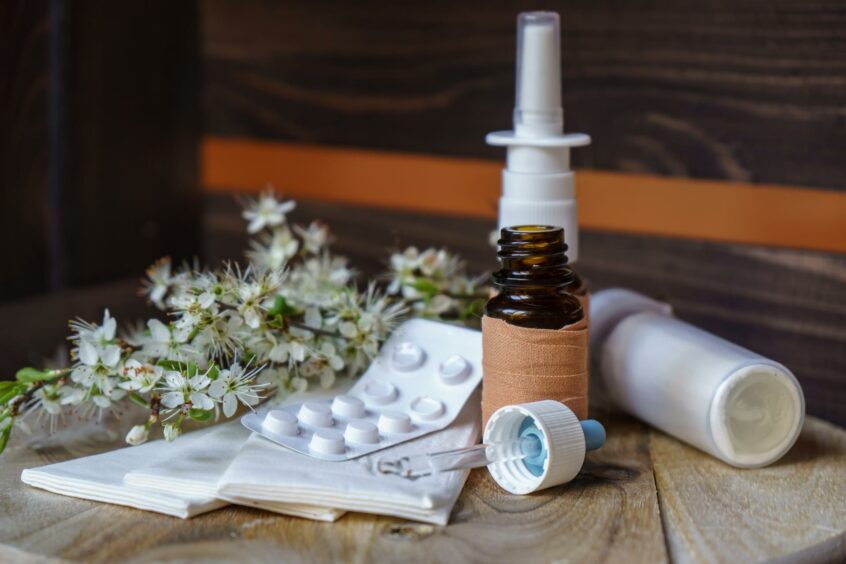With longer days and spells of weather good weather, many of us will be heading out to make the most of the sunshine.
However, warmer temperatures also mean the beginning of hay fever season.
Often those affected will experience sneezing, itchy eyes and a runny nose.
But you don’t have to wait to see your GP to get relief right away.
Pharmacist John Fowlie, of Newtonhill Pharmacy, has advised ways to manage your flare-ups at the first sign.
What is hay fever?
Hay fever is a common allergic condition that affects up to one in five people at some point in their life.
People tend to suffer at different times of the year, depending on which pollen they’re allergic to.
According to the Met Office, pollen season can start as early as January and end as late as November.
In the UK, tree pollen occurs typically from late March to mid-May. Meanwhile, grass lasts from mid-May until July, and weed pollen covers the end of June to September.
“People’s symptoms might change over time,” Mr Fowlie said.
“Usually, people who have hay fever know best themselves when they’re going to have an issue.”
Many people find their symptoms improve as they get older.
Around half of people report some improvement in symptoms after several years.
Symptoms disappear completely in around 10-20% of people.
How can you treat it?
If your nose is running all the time, or your eyes are irritated, itchy and streaming – you might be experiencing the symptoms of hay fever.
“For most patients, we have antihistamine tablets. There are various different tablets you can buy over the counter,” he added.
“You can also get then prescribed in the pharmacy or through a prescription from your GP.”
Mr Fowlie said finding the tablets that are effective for controlling your symptoms is key.
Other products available can be used alongside the tablets, depending on the patient’s symptoms, such as eye drops to tackle irritated and streaming eyes or nasal sprays.
“What we find quite often is we’ll get people coming in with children who have never had it before,” Mr Fowlie explained.
“ For children, there’s over the counter liquid medicines that they can take. They can quite often help with that as well.
“You’ll usually find there’s a genetic link. So, if one of their parents suffers from hay fever, there’s a fair chance the children might suffer as well.”
Simple steps to combat hay fever: Check the pollen count and change your clothes
You can manage hay fever symptoms by taking preventative steps.
Before heading out the door, the Met Office gives a daily indication of what the pollen count in your area will be like for the day.
Changing your clothes and taking a shower once you’ve returned home can prevent bringing the irritants indoors.
The NHS also recommends applying a small amount of Vaseline (petroleum gel) to the nasal openings to trap pollen grains.
“You don’t want hay fever to rule your life, as such, and say ‘I’m not going out today’,” Mr Fowlie said.
“But it can make you aware to take your tablets if you know you’re going to suffer.”
More health news…
What is milk-alkali syndrome, the condition affecting Emmerdale star Gemma Oaten?
Aberdeen bowel cancer doctor warns patients are leaving it too late to get diagnosed
Slugging and snail mucus: Aberdeen expert explains the science behind the latest skincare trends




Conversation